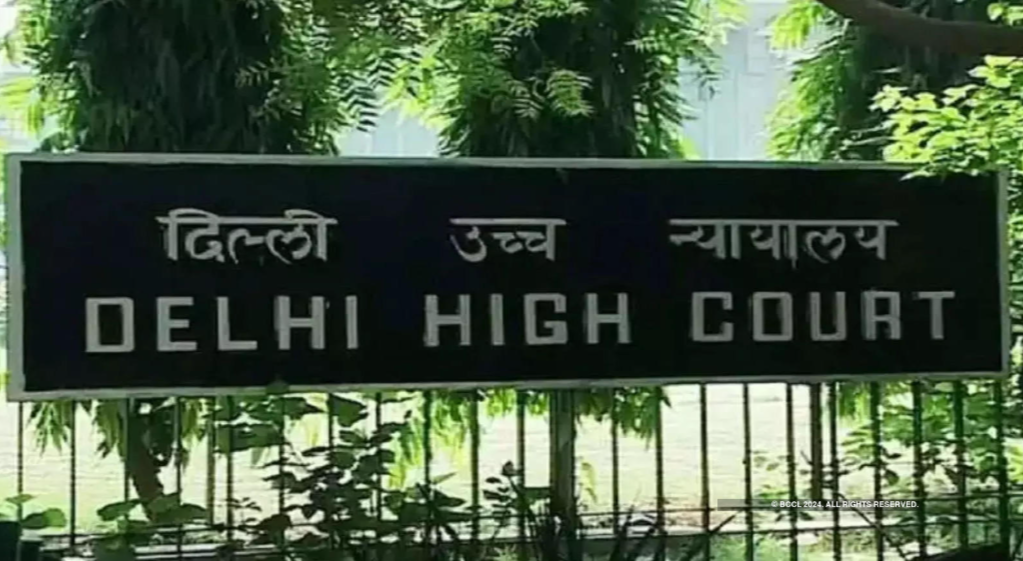Shreya Gupta
The Delhi High Court on June 20, 2025, delivered a landmark judgement which revolves in the sphere of digital intellectual property enforcement. The present judgement was heard and passed by Justice Saurabh Banerjee. (DAZN Limited & Anr. v. Buffsports.me & Ors.)
The bench observed, “In light of the above, under the present scenario, especially, since the plaintiffs are legally rightful owners of the intellectual property rights therein, i.e. both qua its original works as well as the licensed works for exclusive broadcasting, the plaintiff is well and truly entitled to seek and obtain protection. More so, since the infringing acts of the defendant nos.1 to 23 are without obtaining any kind of permission/ authorization/ right/title/ interest from the plaintiffs.”
The plaintiffs, DAZN Limited (a UK-based entity) and its Indian arm DAZN Software Private Limited, are prominent players in the global sports streaming sector, operating across more than 200 countries. Their claim stemmed from their acquisition of exclusive media rights to broadcast the 2025 FIFA Club World Cup, including television and digital broadcasting rights, covering India and other jurisdictions. The event was scheduled to take place in the United States between June 14 and July 13, 2025, and the plaintiffs asserted protection under Section 37 of the Copyright Act, 1957, entitling them to broadcast, stream, or otherwise communicate content to the public.
However, prior to the event, DAZN identified that rogue websites, such as buffsports.me, sporthd.me, and others, were illegally re-streaming its exclusive content, infringing on its copyright. These unauthorized streams, bypassing DAZN’s advanced security infrastructure, were accessible globally and provided the infringers a source of financial gain while severely undermining the plaintiffs’ rights. The plaintiffs contended that this widespread digital piracy not only violated their intellectual property but also posed a significant challenge due to the anonymous and transnational nature of the internet.
Recognizing the gravity and complexity of the issue, the plaintiffs impleaded not just the infringing websites, but also a wider group of defendants including Domain Name Registrars (defendants 7–11), Internet Service Providers (defendants 12–20), and even Government Departments like the Department of Telecommunications (DoT) and the Ministry of Electronics and Information Technology (MEITY) as defendants 21 and 22. The inclusion of “John Doe” (defendant 23) reflected the plaintiffs’ foresight in tackling unidentified infringers that may arise during the tournament. They also sought interim relief and exemption from pre-institution mediation under Section 12A of the Commercial Courts Act, 2015, citing urgency—a request that was accepted by the court considering binding precedents like Yamini Manohar v. T.K.D. Krithi and Chandra Kishore Chaurasia v. R.A. Perfumery Works.
The Court noted the plaintiffs had established a prima facie case of copyright infringement and emphasized the seriousness of the situation. It acknowledged that without immediate relief, DAZN would suffer irreparable harm due to the time-sensitive nature of live sports broadcasting. It also recognized the rogue websites as “masked players” exploiting technology for unlawful gains. Consequently, the court granted an ex parte interim injunction, blocking the infringing websites.
Significantly, the court went beyond conventional remedies and awarded a dynamic injunction, a forward-thinking legal measure designed to combat online piracy in real-time. Unlike traditional injunctions that only target known infringers, dynamic injunctions empower rights holders to notify ISPs and DNRs of new mirror or redirect domains that attempt to bypass the court’s original order. This proactive mechanism allows immediate blocking of such domains without needing fresh court proceedings. The Court reinforced its position by citing precedents such as Applause Entertainment Pvt. Ltd. v. Meta Platforms Inc. and Universal City Studios LLC v. Dotmovies.baby where similar dynamic injunctions were granted to curb online piracy.
Through this judgment, the Delhi High Court emphasized the essential role of ISPs and DNRs as internet gatekeepers and imposed a real-time compliance obligation on them. It acknowledged the judiciary’s role in adapting to the challenges of digital piracy and sending a strong deterrent message to illicit streamers. The ruling showcases the court’s willingness to evolve judicial remedies in line with technological advancements to protect valuable intellectual property, particularly in events of high commercial value like the FIFA Club World Cup.
Case Title: DAZN Limited & Anr. v. Buffsports.me & Ors.
Bench: Justice Saurabh Banerjee
Click here to access the order
Instagram: Click here
LinkedIn: Click here
For Collaboration and Business: info.desikaanoon@gmail.com

